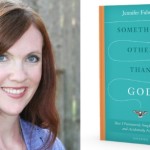The Myth of the Free-Thought Parent
by Dr. Randal Rauser
Filed under Belief

Some years ago while I was delivering a lecture on faith and reason at a secular university, I informed my audience that I had taught the Apostles’ Creed to my daughter, who was four or five at the time. I then noted that as a family we recited the creed every day during our family devotions.
As I expected, the audience appeared to be disturbed by my revelation. One of the students spoke for many when she insisted that children should be raised without “religious dogma”. Instead, they should be free to “make up their own minds” about what to believe. Parents could certainly inform them of the various options, but they should not be partisans for a particular view. Instead, she opined, the conscientious parent should sit back and let their children make their own decisions unencumbered by undue parental influence.
One commonly encounters this ideal of the dispassionate, objective parent in the free thought movement. Consider, for example, this passage from Catie Wilkins’s essay “110 Love Street”:
“My dad, a supremely rational man, even when addressing four-year-olds, answered my question, ‘what happens when you die?’ logically and truthfully. He replied, ‘No one really knows, but we have lots of theories. Some people believe in heaven and hell, some people believe in reincarnation, and some people believe that nothing happens.’ The other four-year-olds were not privy to the open, balanced information that I had, leaving me the only four-year-old to suggest that heaven might not exist.” (“110 Love Street,” in ed. Ariane Sherine, There’s Probably No God: The Atheist’s Guide to Christmas (London: Friday, 2009), 21-22)
Wilkins believed her father’s pedagogical advice provided an empowering and non-dogmatic way to instruct a small child by dispassionately and objectively providing the range of views on a given issue and allowing the child to make her own decision. In short, Wilkins’s father provided a precise contrast with my dogmatizing bequeathal of the Apostles’ Creed to my unwitting progeny.
If Wilkins’s anecdote exemplifies the ideal of the free thought parent, it also exemplifies the inherent tensions , and even contradictions, with this ideal. We can begin to illumine those problems by changing up the scenario. Imagine that instead of posing a question about life after death, the child posed a question about the nature of the good and the right. After overhearing a disturbing murder story on the evening news, the child turns to her father and poses the question: “Daddy, is it always wrong to kill somebody just because you want their money?”
Questions about the good and the right, like questions about the afterlife, are beset with controversy. And so freethought dad gives his non-dogmatic and dispassionate reply in which he offers a survey of opinions so that the child may draw her own conclusions:
“No one really knows, but we have lots of theories. Some people believe it is absolutely wrong because it violates moral virtue or a moral law. But other people believe it could be right if doing so increased the overall happiness in society. Still others believe that each individual must decide what is right for them, and if money makes them happy then they can rightly kill for it.”
I suspect most people will find the father’s response in the second scenario to be problematic (to say the least). But what, exactly, is wrong with it? Let’s consider two problems.
To begin with, the father’s answer is wholly inappropriate for the cognitive level of a four year old. Granted, ethicists disagree over questions like whether it is always wrong to kill somebody for money, but it doesn’t follow that a four year old needs to hear about that entire controversy. At this age they need a simple answer. Complexity and nuance can (and should) be acquired over time, but you need a place to begin.
And what kind of simple answer should one give? Presumably, the answer that best approximates what the parent believes to be true adjusted for the cognitive capacity of the child. For example, if the father believes it is wrong to kill people just because you want their money, then that’s the answer: “Yes, it’s wrong to kill people just because you want their money.” (And if he doesn’t believe this, one hopes his daughter’s question might provide an occasion to reconsider his own view.)
The second problem with the response is that it is not nearly as free and uncommitted as one might think. Despite his alleged neutrality as regards the ethical question, the father is surprisingly committed and dogmatic when he prefaces his comment with the proviso, “No one really knows…” This is most certainly not a neutral statement. Instead, it is a robust epistemological claim. In short, while the father may not espouse any particular ethical view, he does commend to his child a strong agnosticism as regards all ethical views on the topic, and as I said that is not neutral.
So why does this freethought dad believe nobody knows the nature of right and wrong? One suspects that his strong agnosticism is based on an assumption like this: if experts disagree on a particular topic, then one cannot know what the right answer is on that topic. Thus, for example, if ethicists disagree about the wrongness of an action like killing for money, then we cannot know if that action is indeed wrong.
Alas, this assumption is self-defeating. While freethought dad’s belief that unanimity is required for belief is an epistemological claim, epistemologists do not all agree with it. Thus, if we accept that assumption then we ought to reject it.
In other words, unanimity among experts is not required before one can hold a reasonable belief, or make a knowledge claim, on a particular topic. And so the father is free to tell his daughter that it is always wrong to kill other people for money, even if he is aware of ethicists who disagree with him.
The same points that apply to ethics apply as well to the afterlife. If the father is a strong agnostic, that is, if he is persuaded that nobody really knows what happens after death, then he is free to tell his child that nobody really knows. But he should not delude himself into thinking that this perspective is somehow neutral, for it surely isn’t. He is commending a strong agnosticism to his child and if he is successful, she will grow up to hold the same view, just like Catie Wilkins did.
And what of the father whose beliefs about the afterlife are not agnostic but rather Christian, and thus which include convictions about the general resurrection, heaven, and hell? If the strong agnostic is permitted to raise up his child in the belief that nobody knows what happens when you die, then why isn’t the Christian parent permitted to raise up his child in the belief that Christians do know?
The fact is that there is no neutral way for a parent to raise a child … or field their questions. Every answer is sourced in particular beliefs, value judgments, and a broader view of the world. As a result, it is best that we all recognize that parenting involves, among other things, the desire to inculcate in one’s children that set of beliefs and values that one holds to be true.
To be sure, those of us who value fairness and objectivity and a healthy recognition of one’s own cognitive biases will hope that all parents will include those same values in their education. But we hope for that not because that hope is neutral or value free. Rather, we hope for it because it is in this bequeathal of self-awareness of one’s own limitations and generosity toward others that true free-thought is found. It is most certainly not found in the delusion that a dogmatic agnosticism or skepticism toward a particular subject matter is somehow neutral or objective or value free.
Related Posts
Note: Our goal is to cultivate serious and respectful dialogue. While it's OK to disagree—even encouraged!—any snarky, offensive, or off-topic comments will be deleted. Before commenting please read the Commenting Rules and Tips. If you're having trouble commenting, read the Commenting Instructions.












